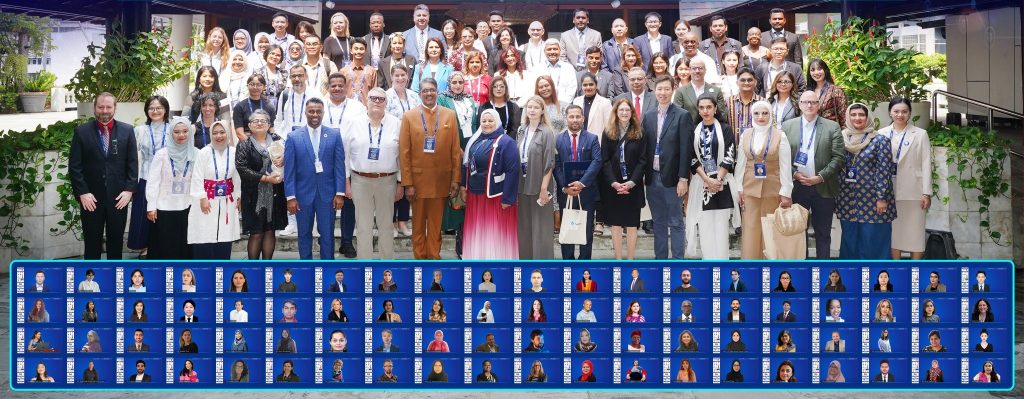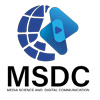For the past ten successful editions, the World Conference on Media and Mass Communication (MEDCOM) has emerged as a global hub for media scholars, professionals, activists, and policymakers. It has consistently fostered meaningful conversations, critical insights, and impactful collaborations across the broad and evolving landscape of media and communication. MEDCOM 2025 continues this legacy, creating a vibrant space to explore the intersection of media, technology, society, and justice in an era of unprecedented change.
Key Objectives of MEDCOM 2026
- Rethink the role of media in shaping sustainability, resistance, and communication justice.
- Investigate emerging media technologies and their societal impacts, from AI-driven journalism to digital ethics.
- Foster inclusive media narratives that amplify underrepresented voices and challenge dominant power structures.
- Promote critical media literacy and digital citizenship in an era of misinformation and algorithmic bias.
- Encourage cross-sector dialogue between academia, industry, civil society, and policymakers for progressive media reforms.
How We Achieve This
The conference will include:
- Thought-provoking keynotes, plenary discussions, and expert-led panels
- Research paper presentations and interdisciplinary knowledge-sharing sessions
- Workshops focused on media education, innovation, and advocacy
- Networking opportunities for building global partnerships and scholarly collaboration
Join the Conversation
We warmly invite scholars, researchers, media professionals, communication educators, content creators, and policy influencers to submit their research and join us at the 10th World Conference on Media and Mass Communication (MEDCOM 2026). Together, let’s reshape the narratives and media futures we want to build.
Conference Theme: “Rethinking Media Futures: Sustainability, Resistance, and Communication Justice”
Key Paper Submission Tracks and Sub Tracks
- Social Media Activism and Advocacy
- Digital Influencers and Online Communities
- Social Media Algorithms and User Behavior
- The Role of Social Media in Political Movements
- Misinformation, Fake News, and Social Media Ethics
- Brand Management and Reputation Strategies
- Crisis Communication and Corporate Social Responsibility
- Digital and Social Media Marketing Strategies
- Consumer Behavior and Advertising Effectiveness
- Stakeholder Engagement and Relationship Management
- Communication Strategies during Natural Disasters
- Risk Perception and Public Health Communication
- Corporate Crisis Management and Communication
- Social Media’s Role in Crisis Communication
- Crisis Communication and Reputation Recovery
- Cross-Cultural Communication Competence
- Conflict Resolution in Interpersonal Communication
- Language and Identity in Intercultural Contexts
- Communication in Multicultural Workplaces
- Nonverbal Communication across Cultures
- Media and Cultural Identity Construction
- Globalization and Cultural Exchange through Media
- Representation of Minority Cultures in Media
- Popular Culture and Social Narratives
- Cultural Policy and Media Regulation
- Artificial Intelligence in Content Creation and Curation
- Automation and Media Production
- Virtual Reality (VR), Augmented Reality (AR), and Immersive Media
- Ethical Implications of AI in Journalism and Communication
- Emerging Technologies and Media Consumption Patterns
- Investigative Journalism and Media Ethics
- News Media and the Digital Transformation
- Citizen Journalism and Participatory Media
- Media Representation and Framing of Social Issues
- The Impact of Media Ownership on News Production
- Religious Media and Digital Outreach
- Interfaith Dialogue and Communication
- Faith-Based Messaging in Social Movements
- The Role of Religion in Community Building
- Ethical Issues in Religious Communication
- Campaign Strategies and Political Advertising
- Media Influence on Public Opinion and Voting Behavior
- Political Satire and Media Framing
- Social Media and Political Mobilization
- Populism and Political Discourse
- Climate Change Communication Strategies
- Media Representation of Environmental Issues
- Community Engagement in Sustainability Campaigns
- Corporate Sustainability Reporting and Communication
- Environmental Advocacy and Public Awareness
Abstract Submission Guidelines
DOWNLOAD THE ABSTRACT TEMPLATE
To Download the abstract template, please fill out the fields below
- An abstract is a compendious summary of a research paper’s substance including its background, purpose, methodology, results, and conclusion.
- It should be one paragraph with a word limit of 175-275.
- Keywords should be provided as a must (no more than 06 words).
- Keywords should be written in lowercase letters (Not applicable to names/scientific names) and should be separated with commas.
- Please do not include subheadings, bullets, lists and header/footer in the abstract.
- Abstract titles should be short, but descriptive. Informative titles, indicating key points are encouraged. Abbreviations should not be used in the title.
- Acronyms should be written in full the first time, mentioned in the text, followed by the abbreviation in parentheses.
- Always follow SI Units.
- Scientific names must be in Italic.
- Use a negative exponent (g. kgm-3) and do not indicate units as divisions (e.g. kg/m 3).
- Chemical formulae should be written in a standard form such as “CaCO3”, not as “CaCO3”. Use a zero before decimal points such as “0.45,” not “.45.”
- There shall be no citations or references in the abstract specifically. If there is a need to cite references, please provide the sources in brackets.
FONT
- Title: Times New Roman, 12 points, Upper case, Centered text in bold
- Body: Times New Roman, 11 points; Line spacing: 1, one column of text
AFFILIATIONS
- Affiliations should be indicated with superscript Arabic numbers appearing at the end of surname/family name.
- A superscript asterisk shout be used for the corresponding author
- Names of affiliations should be given including the country.
- If there is more than one name and address, they should be related by superscript numbers.
Ex:-
Surname INITIALS 1, Surname INITIALS 1* and Surname INITIALS 2
1 Department, Faculty, University, Country
2 Department, Institute, Country
*author@gmail.com (* Email address of the corresponding author)
- Abstracts should represent the original work.
- Informative abstracts and critical abstracts are accepted.
- The Abstract should be written in English.
- Please indicate one – three most relevant themes for your abstract from the conference tracks.
- Please send in a brief biography together with the Abstract (An example is given in the abstract template).
- Please download the abstract template and follow the format carefully.
- Documents that do not conform to the guidelines will be asked to revise.
- Documents received after the given deadline, due to any reason will not be accepted unless the deadline is extended.
- The abstract should be submitted in the format of MS Word (.doc or .docx) document.
Important information for the Co-Authors
- Please note a single registration permits only one person to attend the conference
- If the co-authors would like to attend the conference their registration and payment are required to be made independently.
- However, they will be given a discount of 15% from Non-Presenter’s (Listener’s) Registration Fee
- The certificate will be issued for the co-authors upon their registration/payment for the conference.
- Please make prior communications with the organizing committee regards to this matter to enjoy the benefit of the discount.
If you are not hearing from us
- Please set your spam filter to accept message from secretariat@mediaconference.co
- Contact the main conference coordinator at secretariat@mediaconference.co in case you do not receive an acknowledgment/follow-up email within 48 hours after your registration or inquiry.
- Please check your spam/junk folder prior to making inquiries regarding your concern.
- Make sure to provide your mobile phone number in your registration form along with your abstract for further communications
You may send your abstract according to the abstract guidelines. Different registration packages of the conference provide you so many benefits including food, conference pack, abstract book, eligibility to attend the technical sessions, career development workshops, publication opportunities etc. You can select different presentation modes according to your preference. Presentations awards are one of the key elements of the conference. The presenters at the conference will be evaluated by a special committee of academic experts during the conference and the best presenters will be awarded at the award ceremony.



